Transcript
We just read the closing words of the 5 Books of Moses. The final page of an epic story. A story that for me will always be seen through the creative eyes of Cecil B DeMille and his four hour epic movie starring Charlton Heston. Could there ever have been a better actor chosen to “play” the role of Moses. Although I will be honest and say I always wondered what Moses was doing riding a Roman chariot in circles and then riding across the desert on a planet where humans didn’t speak until he encountered Lucius and Cornelius, two talking apes.
The Torah is a story with great characters. A story that is revealed to us in each weekly episode. Sometimes even with a cliffhanger that the writers of Coronation Street or Eastenders would be proud of. (Rabbi - you’re probably not that familiar yet with the television art form known as the british soap opera - just think Days of our Lives but with grime). Will Abraham really sacrifice his son. Will Jacob finally get the right girl. Will anyone find the baby Moses in the bullrushes and so many more.
The Torah is full of allegorical tales to guide us to living an honest, productive and meaningful life. It is both a history book and an instruction manual. It contains advice on family life, health, business ethics and much more.
All great stories finish with the same two words - the end. But not this story of Moses.
Most great stories have sequels. But not this story of Moses.
(I heard there is a lesser known sequel but it had a different leading character, different author and like most sequels it’s not as good as the original.)
Instead of a sequel what do we do? We start reading it all over again right from the beginning.
Progressive Judaism emphasizes the evolving nature of Judaism, closely intertwined with human reason and intellect. Could there be anything more appropriate for a progressive jewish community to do than to continually revisit the torah and study it anew?
Why? Because each time we read the weekly parasha something new is revealed to us and we may come to a new understanding of the meaning of the text.
Of course this doesn’t just apply to the torah but to all our religious life and practices.
I have been a progressive jew all my life. Which currently is 51 years and 51 weeks. During that time I have experienced several rabbis at Sinai. Charing, Emanuel (another american), Rothschild, Morris and now Rabbi Strasko. Each of those Rabbis had their own style. They have all guided Sinai through the, often challenging, progressive jewish process of constantly re-evaluating our practices and customs.
The role of women in our community has changed. The Ladies Guild disappeared. Many women wear tallit and kippot.
The use of music has certainly changed. From the choir and organ of my youth - hidden away behind a screen in a separate room - through to times with no choir at all and little music in the service except for ein keloheinu and adon alom at the very end. Through to today where it seems that every week Rabbi Strasko is introducing us to new melodies and new songs. Although sometimes I do wish that I didn’t spend the week with nai nai nai n n n nai nai going through my head.
Interfaith is no longer limited to the Council of Christians and Jews. It now embraces all religions and not just as a means of removing barriers. Through groups such as nisha nishim people are able to share our faiths, compare practices and remove stigmas.
Today we don’t just collect stamps for the blind, we collect food for the hungry and provide shelter to the refugee.
When Ruth and Ernest Sterne founded Sinai a youth club was for those under 21. Now it can sometimes seem that it is for those under 21 months. Have you seen how many come to shabbatots?
Our bodies also change over time - and that’s a good thing. It reminds us that life doesn’t stand still and neither should our judaism. They say that as we get older we should exercise more, not less. I take that to mean exercise our minds as well as our bodies.
We should not sit back and do things the way we have always done them. To me that is “lazy judaism”. Unlike the early German reformers, of the enlightenment or haskalah, as progressive jews in the 21st century living in Leeds we don’t just stop doing things. We don’t just say “we decided that 25 years ago”. We don’t just say ”that’s the way we have always done this and we don’t change.” Today we go through a process of study, understanding and evaluation.
The word Rabbi means “teacher of torah”. (It is only relatively recently that a Rabbi has taken the additional role of shaliach tzibbur.) We have gone through a period of being without a Rabbi. During that time, we as a community worked together to ensure services took place etc but we did not thrive. Something was missing.
As we start to read the torah anew each week I look forward to being challenged by the Rabbi’s sermons and classes, to learn new tunes and discover and embrace traditions that are not part of my history.
I look forward to arguments for the sake of heaven. Judaism is a religion based on argument and debate. It is perhaps the only religion where our key texts, the torah, mishnah, midrash and talmud are anthologies of arguments.
I look forward to seeing long time members and former members returning to Sinai. I look forward to seeing new members and I definitely look forward to experiencing more days like today when the shul is full of the noise of the future.
Chag Sameach

